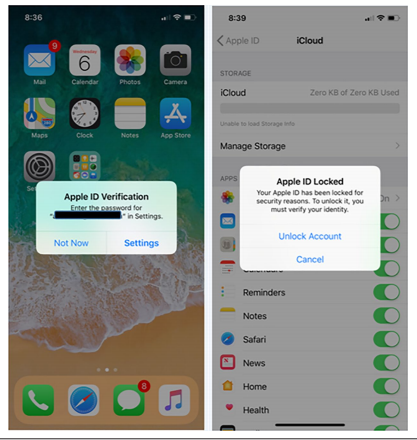Spyware is an increasingly popular tool sold to provide a surveillance tool to the general population, often advertised as the solution to parents, businesses, or spouses wanting to spy on their children, employee or partners. When this software is installed on the victim’s phone, it acts as a third party between the victim’s phone and the person who wishes to monitor them. The software gives access to the GPS location, text messages, calls, photos, videos, internet search history. In some cases, it is possible to have live access to the camera or phone speaker.
Reading the long list of options that this spying service offers is very stressful. This software threatens everyone’s privacy, confidentiality, and privacy but is especially harmful to children and domestic and intimate violence victims. Several major privacy institutions are concerned about the large numbers of complaints made by victims against their spouses spying on them through these tools. Harassment complaints and the number of users are only increasing, and so is the threat to victims. Domestic violence is also becoming very worrying. Very few studies have focused on spyware victims’ experience, specifically whether that experience changes depending on the phone on which the spyware is installed.
Researchers Harkin and Molnar (2020) set to analyze the difference between the two most popular operating systems for smartphones, Android or iOS, and see how those software work for the user and the victims. To do so, they purchased nine spyware licenses that can be used with both mobile operating platforms.
The software was tested for several days to see if its functionality would change over time. Each of the systems has been tested on different phones, two Android (Samsung Galaxy S7 version 7.0, Samsung S9 + with version 8.0), and two iPhones (iPhone 5 with iOS 10.3.3 and iPhone X with iOS 11.2). Several analytical techniques were used in this study project: legal privacy policy analysis, legal analysis, forensic analysis, and user analysis involving testing each spyware.
The main results of the analyses:
A) The applications available on the Google Play Store are «stealthier» than the applications available on the App Store. iOS sends notifications that third-party software when in watch mode.

B) Spywares that comes from the Google Play Store have a more disturbing range of features.
C) An iPhone requires a “jail-break” to equalize the stealth and power of spyware available on the Google Play Store. To achieve a “jail-break,” one needs technical knowledge and access to the iPhone owner’s passwords, making the task more complicated than Android.
D) Android allows its users to download spyware from unknown sources directly found on the internet, unlike iOS, which does not allow third-party software to be installed on an iPhone without a jail-break.
E) iOS was designed to highlight suspicious behaviour.

Overall, the researchers conclude that phones using Android are currently more vulnerable to spyware than those using iOS, primarily because of these two systems’ philosophy. Indeed, the Android operating system is considered more open. This implies that Android allows developers who can do so to have access to the operating system for free and then modify and customize the functionality of their smartphone, which is not possible with iOS. Applications must go through the Apple App Store to be downloaded to the mobile. This implies that victims of spyware are more at risk if they own an Android phone.
However, it is essential to note that 1) the data used in this research was collected in 2018. The functionality of both operating systems may have changed since then and are subject to change in the future because they are constant updates with the different versions. 2) The article aims not to alarm or point the finger at one company more than another, but to demonstrate the impact that features and software created for customers can be misused and can severely affect individuals.
In addition to its empirical impact, the study highlights the importance of examining the impact of technology on domestic and intimate violence.



